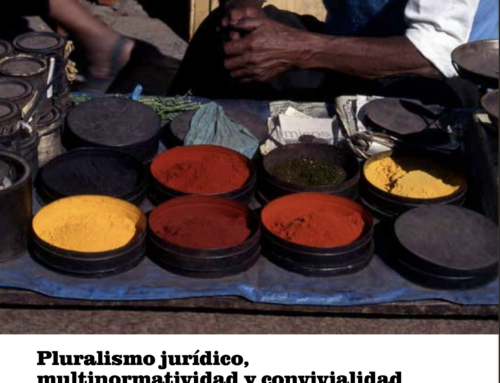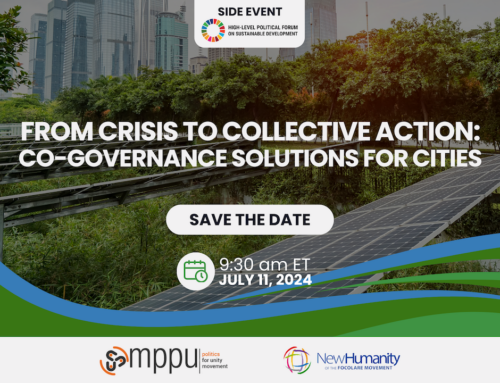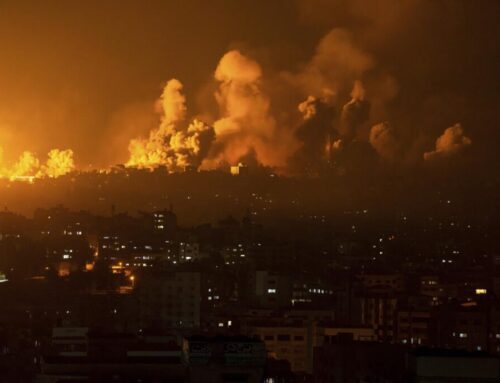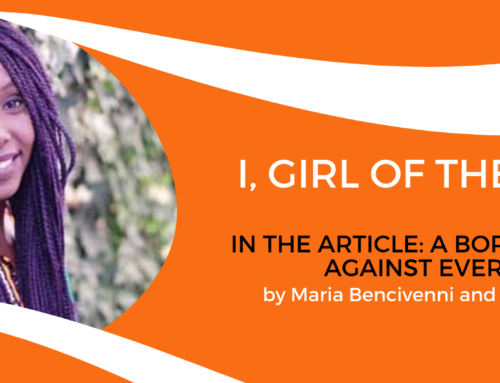Declaration of the 9th African Union High-Level Retreat on the Promotion of Peace, Security and Stability “Strengthening African Union’s Conflict Prevention and Peacemaking Efforts”

1. The 9th Annual High-Level Retreat of Special Envoys and Mediators on the Promotion of Peace, Security and Stability in Africa was convened in Accra, Republic of Ghana, from 25 to 26 October 2018, on the theme, “Strengthening African Union’s Conflict Prevention and Peacemaking Efforts”. This Retreat was organized by the African Union (AU) Commission and hosted by the Government of the Republic of Ghana. The Retreat was supported by the Government of the Republic of Finland and the Government of the Federal Republic of Germany, with the African Centre for Constructive Resolution of Disputes (ACCORD) providing technical support in situ.
2. The Retreat was officially opened by the President of the Republic of Ghana, H.E. President Nana Akufo-Addo. He emphasised the critical importance of both structural and direct conflict prevention as well as mediation by the African Union giving the example of the just launched Country Structural Vulnerability and Resilience Assessment of the Republic of Ghana, jointly conducted with the African Union Commission. The President furthermore stressed the need for legitimate and accountable governance in Africa as pre-conditions of inclusive social development of African Union Member States. The opening ceremony also featured statements by the AU Commissioner for Peace and Security, H.E. Amb. Smaïl Chergui, and H.E. Mohammed Ibn Chambas, Special Representative of the UN Secretary-General and Head of the UN Office for West Africa (UNOWAS).
3. The Retreat brought together former Heads of State, Senior Officials of the AU Commission, the AU Special Envoys, High Representatives, Mediators and Members of the Panel of the Wise, members of the Pan-African Network of the Wise (PanWise), members of the African Network of Women in Preventive Diplomacy and Mediation (FemWise-Africa) as well as representatives of the Regional Economic Communities/Regional Mechanisms (RECs/RMs). Moreover, the Retreat was attended by several Special Representatives of the UN Secretary-General, including Special Envoys and Senior Representatives of UN agencies; the League of Arab States (LAS); senior officials representing the International Organisation of La Francophonie (OIF); the European Union (EU); and bilateral partners. Also in attendance were leaders of civil society organisations, think tanks and academia.
4. During the two-day Retreat, deliberations focused on a wide-ranging number of issues revolving around this year’s main theme “Strengthening African Union’s Conflict Prevention and Peacemaking Efforts”. Presentations and discussions were focused on emerging threats to peace and security on the African continent as well as long-term trends that might negatively impact on the implementation of Agenda 2063 “The Africa We Want”. In addition, participants critically assessed lessons learnt from international, continental and regional conflict prevention and management in Africa as well as the effectiveness of the mechanisms of conflict prevention, management and resolution currently in place, exploring ideas on the way forward.
5. Participants of the 9th AU High-Level Retreat also reflected on the opportunities to improve cooperation and collaboration on conflict prevention and mediation with the REC/RMs, the United Nations and other international partners. The Retreat acknowledged the ongoing work with the UN Environmental Programme and the UN Department of Political Affairs within the AU-UN Enhanced Partnership on Peace and Security in Africa framework.
Special attention was paid to the normative and practical challenges to mediation in increasingly changing conflict terrains, both in Africa and in the Middle East. Finally, participants exchanged views on the Action for Peacekeeping (A4P) initiative launched by the UN Secretary-General in March 2018 in order to renew political support for UN peacekeeping efforts. The initiative is strongly supported by the African Union which endorsed the Declaration of Shared Commitments on UN Peacekeeping on 22 September 2018.
6. In this respect, participants expressed their grave concern with respect to critical contemporary trends which have an inordinate impact on peace and security: rapid processes of urbanization (including a rise in urban social protests); the consequences of accelerated climate change with its obvious implications for livelihoods and food security, among others leading to substantial migration within and across African countries; rising levels of inter-communal conflict between herders and farmers; the continued scourge of violent extremism and terrorism especially in the Horn of Africa, the Lake Chad Basin, and the Sahelo-Saharan region; transnational organised crime and trafficking in small arms and light weapons, but also human and drug trafficking; protracted political conflicts, among others in Central Africa and the Great Lakes Region. Of particular concern to participants at the Retreat was the challenge of harnessing a developmental dividend for Africa’s youth from current population growth and demographic trends.
7. In addition, and despite positive developments on the continent such as the historical rapprochement between countries of the Horn of Africa, participants expressed deep concern at two additional worrying developments: the increasing militarization of parts of the continent, in particular the Sahel and the Horn of Africa/Red Sea; and, an increase in external intervention which compromises the efficacy of African-led solutions to violent conflicts on the continent. Participants also focussed on the changing international environment, particularly the erosion of the international principle of multilateralism, the effects of global climate change, and also the effect of changing international trade policies on the continent, and the challenges related to migration and internal displacement.
8. Participants agreed that the promotion and development, on the continent, of a system and culture of accountable governance, free of corruption, whereby our people are governed in accordance with the rule of law, respect for individual liberties and human rights, and the principles of democratic accountability was crucial for Silencing the Guns in Africa by 2020.
9. Against this background, participants of the Retreat praised the AU Commission for heralding the crucial principle of structural conflict prevention through the Continental Structural Prevention Framework and other policies. In this context participants applauded the H.E. President Nana Akufo-Addo, the Government and the Republic of Ghana for being the first AU Member State to successfully launch a Conflict Structural Vulnerability/Resilience Assessment which is a core tool developed by the AU Commission to assist AU Member States in building-up resilience and foster inclusive development.
10. In light of the above discussion, the Retreat recommended the following:
- The African Union to continue to pursue the proposed reforms of the organisation so as to create a people-centred union with operational effectiveness and efficiency, and sustainable financing to better address our continental needs;
- For the AU Commission, the REC/RMS and Member States to focus on initiatives to hasten implementation of the African Union policy of Silencing the Guns by 2020, including the acceleration of the signature, ratification and domestication of relevant AU instruments – such as the 2007 African Charter on Democracy, Elections and Governance as well as the 2014 African Charter on the Values and Principles of Decentralisation, Local Governance and Local Development – as well as the implementation of sustained sensitization and popularization activities;
- For Member States to swiftly implement the Continental Free Trade Area Agreement as well as other relevant decisions in order to hasten our efforts towards integration, stop the vicious cycle of violence, and enable the advancement of well-being and prosperity for the majority of our peoples;
- Participants expressed concern about those Member States that invoke the principle of sovereignty to prevent the engagement of the Union, and recommended to fully respect the 2000 AU Constitutive Act and the 2002 Protocol Relating to the Establishment of the Peace and Security Council;
- For the African Union to ensure that instruments which address peace and security as well as democracy and governance challenges are applied consistently across AU Member States;
- For the AU Commission to continue assisting its efforts to strengthen the capacities of Member States to analyse, prevent and respond to peace and security challenges;
- For the AU Commission to further strengthen conflict prevention and mediation as cross-cutting and collaborative activities, and continue its shift towards a focus on service delivery to Member States and REC/RMs, with a specific aim of enhancing their capacities and ability to respond to these challenges;
- Participants highlighted that the principle of subsidiarity is important in guiding the relations between the Union and the REC/RMs and that, where appropriate, mediation efforts should be led by the REC/RMs;
- For all stakeholders concerned to enhance their support for the full operationalisation of ground-breaking direct prevention initiatives such as the Pan-African Network of the Wise (PanWise) and very particularly the Network of African Women in Conflict Prevention and Mediation (FemWise-Africa), and strengthen the operational links between these networks and the REC/RMs, including elaborating plans of action and implementing deployments plans;
- For the African Union to promote alternative perspectives on conflict resolution and peace-making, with particular attention to second and third track mediation efforts by involving sub-national actors, from grassroots community-based organizations to religious and traditional authorities;
- Promote increasing opportunities for experience sharing and communication between the AU Special Envoys, High Representatives, Mediators and Members of the Panel of the Wise as well as representatives of the RECs/RMs;
- Enhance strategic and operational coordination of conflict prevention, resolution and mediation efforts by the AU, the RECs, the UN and other international and local actors to strengthen the efficacy of conflict prevention and resolution efforts and further African-led solutions to peace and security based on subsidiarity and comparative advantage (including within International and Regional Contact Groups);
- With regard to structural conflict prevention, participants strongly encouraged AU Member States to follow the example of Ghana, and to systematically engage with the existing Union mechanisms of structural conflict prevention;
- Call upon UNEP and UN Department of Political Affairs and other likeminded partners, to continue the ongoing support to the African Union peace and security efforts through the Panel of the Wise on mainstreaming natural resources governance and climate change dimensions into conflict prevention, mediation and peace building processes.
11. In a special ceremony, the 9th AU High-Level Retreat posthumously bestowed the AU Peace Award to two outstanding Africans who throughout their long career in African and international institutions have hugely contributed to the advancement of peace, security and stability on the African continent: the late Kofi Annan, the 7th Secretary-General of the United Nations and recipient of the 2001 Nobel Peace Prize who passed away on 18 August 2018; and the Nigerian-born scholar and diplomat Prof. Margaret Aderinsola Vogt who passed away on 23 September 2014
12. Participants commended the African Union for the successful conduct of the 9th Retreat of Special Envoys and Mediators, emphasizing its value as a unique opportunity for candid inter-institutional dialogue. It remains a unique continental platform for reflection on global and continental peace and security challenges, especially in conflict prevention and peacemaking. The 9th Retreat gave participants a renewed sense of purpose for contributing to Silencing the Guns in Africa by 2020.
13. Finally, participants also expressed their sincere gratitude to the Government and the People of the Republic of Ghana for their warm welcome and hospitality, as well as for the excellent capacities and facilities provided towards the successful organisation of the Retreat.





Leave A Comment